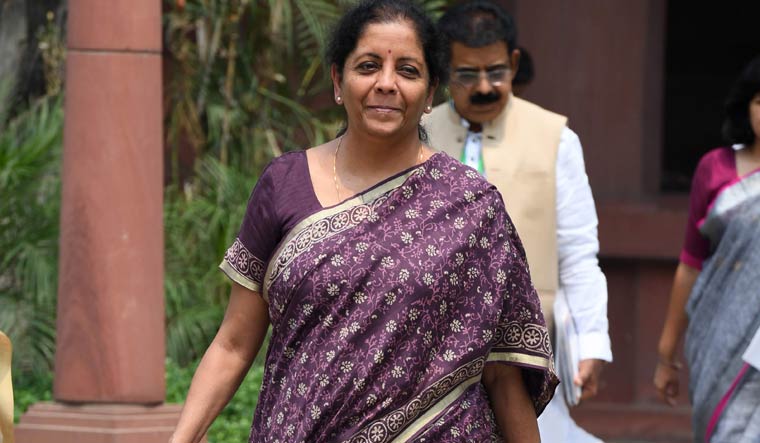Taxpayers are looking forward to July 5 to see whether Finance Minister Nirmala Sitharaman would exercise any cuts on their taxes. While the expectations of a tax break are louder from businesses, which are facing the stress of an economic slowdown, individual taxpayers are more likely to continue with existing benefits.
In the interim budget earlier this year, acting finance minister Piyush Goyal had announced a number of benefits, including hiking the ceiling of taxable income to Rs 5 lakh from the previous limit of Rs 2.5 lakh. Tax on 'notional rental income' from the second self-occupied house was abolished. The standard deduction for the salaried class was also hiked from Rs 40,000 to Rs 50,000.
"For salaried and individual taxpayers, this budget may not hold too many big surprises. With overall demand shrinking and with deficits on the rise, there may not be a lot of fiscal space for offering more benefits," said Soumyakanti Ghosh, group chief economic adviser, SBI.
Ghosh was part of a select group of 14-odd economists who met both Sitharaman and Prime Minister Narendra Modi before the budget. "We had sought more stress instead on macro-stabilisation of the economy through job creation, export boost and a continuance of fiscal consolidation," said Ghosh.
Corporates, however, are seeking a 'friendlier' direct tax regime. "The overall corporate tax burden in India is higher than anywhere else," said Vikram Kirloskar, CII president. Corporate tax rate had remained unchanged at 30 per cent in the last five years of the Modi government. It was reduced to 25 per cent for companies with an annual turnover less than Rs 250 crore by former finance minister Arun Jaitley in the 2017-18 Union budget.
In addition to this, companies are subject to a Minimum Alternate Tax rate of 18.5 per cent on net profits and another 17.6 per cent as Dividend Distribution Tax (DDT). This takes the effective tax on companies' profits to as high as 67 per cent of their net income. In the US and some other economies, corporate tax rates were recently moved sharply downward to aid multinationals that took a hit due to an ongoing tariff war.
However, come budget day, containing the widening fiscal deficit would be top of Sitharaman's agenda. Government spending, which had reduced to 3.1 per cent of the GDP two years back, had gone up to 3.4 per cent on account of higher wage and pension bills and on account of interest payments for market borrowings on infrastructure projects that were announced.
In the final years of the first Modi government, efforts were made by Jaitley to stick to the roadmap of fiscal consolidation, with some deviations. However, under him, the government also did a lot of off-budget financing for its large infrastructure projects, which added to the interest burden of the government.
All this does not augur well for the hopes of corporates to see more parity in the dual tax rate existing between smaller and larger firms. "With this dual tax rate, smaller firms do not see any incentive to become bigger," said Bidisha Ganguly, chief economist, CII.
also read
- Finance Minister Nirmala Sitharaman's move to hike GST on sale of used cars could boomerang
- Finance minister Nirmala Sitharaman assures disaster-affected states of more funding under SASCI scheme
- Congress amended Constitution to help Gandhi family: Nirmala Sitharaman in Rajya Sabha
- Lok Sabha passes Banking Bill; Indian banks remain healthy, says Sitharaman
Meanwhile, the standing committee examining the Direct Tax Code Bill of 2010 is likely to finally submit its report to the Central Board of Direct Taxes (CBDT) later in the month. The report is likely to signal India's transition to a new direct tax system and address challenges of the transition.
While there is no confirmation yet as to how soon the DTC can be adopted, tax experts said that the government could initiate a roadmap for its introduction in the Union budget. "We see less likelihood for any changes in corporate taxes yet. It is most likely that any fresh reductions would be offered only under the DTC now," said Rahul Garg, partner and direct tax leader, PwC India.



